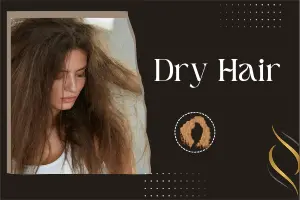Expert Tips on Managing-Oily Hair Like a Pro
Published: 19 Oct 2024
Oily hair can feel like an endless battle, but you’re not alone! Many people around the world face the challenge of managing grease-prone tresses. While it’s normal for the scalp to produce some oil (or sebum) to keep your hair healthy and shiny, excessive oil can lead to limp, lifeless hair that feels unclean. But fear not! This guide shows you how to keep oily hair at bay and maintain your luscious locks.
Understanding the Causes of Oily Hair
Before we jump into solutions, it’s crucial to understand what causes oily hair. Sebaceous glands in your scalp produce sebum, which travels down the hair shaft to moisturize your strands. However, overactive sebaceous glands can lead to an oily scalp. Factors contributing to this include genetics, hormonal changes, diet, and even your hair care routine. Recognizing these factors is the first step towards managing oily hair effectively.
Develop the Right Hair Washing Routine
One of the biggest myths about oily hair is that washing it more frequently will solve the problem. In reality, washing your hair too often can strip it of natural oils, prompting your scalp to produce even more sebum. Instead, aim to wash your hair every two to three days with a mild, sulfate-free shampoo designed for oily hair. Look for shampoos containing ingredients like tea tree oil or salicylic acid, which help control oil without drying out your scalp.
Example Shampoo Routine:
- Wet your hair thoroughly with warm water to open up the hair cuticles.
- Apply a quarter-sized shampoo and gently massage your scalp using your fingertips. Focus on the roots where oil accumulates.
- Rinse thoroughly with cool water to seal the cuticles and add shine.
- Follow with a lightweight conditioner, focusing on the ends rather than the scalp.
Choose the Right Hair Products
When it comes to hair products, less is more for those with oily hair. Avoid heavy conditioners, serums, and styling products that can weigh your hair down and add to the greasiness. Opt for lightweight, oil-free formulas instead. Additionally, dry shampoo can be a lifesaver, absorbing excess oil and adding volume between washes.
Tips for Choosing Hair Products:
- Look for “oil-free” or “clarifying” labels on products.
- Use dry shampoo sparingly to refresh your hair without washing.
- Avoid silicones, which can build up and make hair feel greasy.
Be Mindful of Your Diet
Your diet can also play a significant role in the health of your hair. Foods high in unhealthy fats and sugars can contribute to excess oil production. Incorporate a balanced diet rich in fruits, vegetables, lean proteins, and whole grains. Omega-3 fatty acids found in fish, nuts, and seeds can also help regulate oil production. Staying hydrated by drinking plenty of water is another simple way to support your hair’s health.
Limit Touching Your Hair
It might be tempting to run your fingers through your hair or rest your chin on your hand, but frequent touching can transfer oils from your hands to your hair, exacerbating the oiliness. Try to minimize contact with your hair throughout the day to keep it looking fresh longer.
Regularly Clean Hair Tools
Regularly cleaning your hairbrushes, combs, and styling tools is essential for preventing oil buildup. Dirty tools can transfer old oils and product residue back into your hair, undoing your efforts. Clean your tools weekly with warm water and a gentle shampoo to ensure they stay oil-free.
Experiment with Hairstyles
If oil control is still an issue, consider adjusting your hairstyles. Updos, ponytails, and braids can disguise oily roots while keeping your hair off your face. These styles not only look chic but also help reduce the temptation to touch your hair. Hair accessories like headbands and scarves can also be stylish ways to manage oily hair days.
Avoid using hot water when washing your hair, as it can stimulate oil production.Consider incorporating scalp massages into your hair-washing routine to help distribute natural oils and improve circulation.Don’t skip conditioner altogether, as it can help keep your hair moisturized without adding excess weight. Just be sure to only apply it from mid-shaft to ends.If you have fine or thin hair, consider using a volumizing shampoo and avoid heavy products that can weigh your hair down.When applying styling products, focus on the lengths and ends of your hair rather than the roots. This will prevent excess oil buildup at the scalp.Remember, everyone’s hair is unique and may require different strategies for managing oily hair. Be patient and consistent in finding what works best for you.Additional Tips and Tricks:
Conclusion
Managing oily hair doesn’t have to be a struggle. With the proper knowledge, products, and routine, you can enjoy clean, voluminous hair every day. Take the time to understand your hair’s needs and experiment with different tips until you find what works best for you. Remember, consistency is key! Ready to transform your hair care routine? Start implementing these strategies today and say goodbye to oily hair woes.
FAQs:
Q: Can genetics play a role in oily hair?
A: Yes, genetics can contribute to overactive sebaceous glands, and therefore oily hair exists.
Q: How often should I wash my hair if it’s oily?
A: Aim for every two to three days with a gentle shampoo designed for oily hair.
Q: Will using dry shampoo make my hair even oilier?
A: No, using dry shampoo sparingly can help absorb excess oil on your scalp between washes. Just be sure to choose an oil-free formula.
Is oily hair healthy?
Oily hair is not unhealthy, as natural oils protect and moisturize the scalp. The key is balancing oil production without stripping hair of its natural moisture. With proper care, oily hair can still be healthy and beautiful.
What is oily hair caused by?
Oily hair is caused by overactive sebaceous glands, influenced by genetics, hormones, diet, and stress. Harsh products or overwashing can worsen it. For personalized advice, consult a dermatologist or trichologist.
Are there any natural remedies for oily hair?
Some people have found success in using natural remedies to help manage oily hair. These include rinsing with apple cider vinegar or lemon juice and using aloe vera gel as a scalp mask.
How do I stop my hair from getting greasy?
To stop your hair from getting greasy, avoid touching it throughout the day, use oil-absorbing products like dry shampoo, and incorporate scalp exfoliation. Maintain a healthy diet and limit excessive heat styling, as it can increase oil production. With consistent care, you can achieve healthy, oil-free hair and enjoy good hair days ahead.
How can oily hair be treated?
To treat oily hair, use gentle, oil-balancing shampoos, incorporate scalp exfoliation, avoid excessive heat styling, and consider adjusting your diet and lifestyle. Be patient and consistent, as it may take time to find the best solution for you. If needed, consult a dermatologist for personalized advice.

- Be Respectful
- Stay Relevant
- Stay Positive
- True Feedback
- Encourage Discussion
- Avoid Spamming
- No Fake News
- Don't Copy-Paste
- No Personal Attacks



- Be Respectful
- Stay Relevant
- Stay Positive
- True Feedback
- Encourage Discussion
- Avoid Spamming
- No Fake News
- Don't Copy-Paste
- No Personal Attacks





